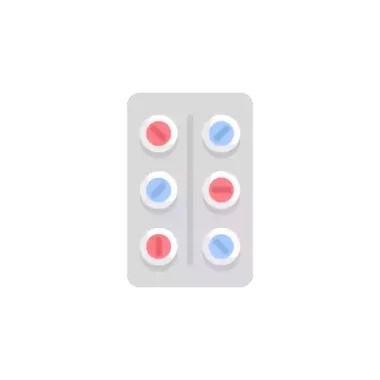Composition Reviparin (3436IU)
Rx Prescription Required
Pack vial of 0.6 ml Injection
Storage Store below 30°C
Chemical Class Low molecular weight heparin (LMWH)
Action Class Low molecular weight Heparin (LMWH)
Habbit Forming No
Manufacturer Abbott
Manufacturer address 16th Floor, Godrej BKC, Plot – C, “G” Block, Bandra-Kurla Complex, Bandra (East), Mumbai – 400 051, India

Clivarine Injection
Clivarine Injection is an anticoagulant used to treat and prevent harmful blood clots in the body. It stops existing clots getting any bigger and stops new ones forming in the legs, lungs, brain, or heart. This can help prevent acute coronary syndrome, deep vein thrombosis, and pulmonary embolism.
Basic Info
Description
Clivarine Injection is administered under the supervision of a doctor or a nurse. It should not be self-administered at home. The dose and length of treatment are based on your medical condition, your response to the medicine, and what you are being treated for. It may also be based on your age and weight. It is important to keep taking the injection even if you feel no symptoms because it is preventing future harm. If you stop taking it, you could get a blood clot.
The most common side effects of this medicine include headaches, bleeding, nosebleeds, constipation, and abnormal liver function. While taking this medicine you should avoid doing things that increase your risk of bleeding or injury and be careful while shaving, cutting nails, or using sharp objects. Bleeding can be dangerous and may not be obvious. Look out for symptoms like uncontrolled bleeding gums and inform your doctor.
Before using this medicine, you should tell your doctor if you have high blood pressure, diabetes or you have had a recent stroke and you should not take it if you have any current bleeding. Some medicines should not be used with Clivarine Injection. Tell your doctor what other medicine you are taking to make sure it is safe. If you have low body weight, you may be at increased risk of bleeding, and drinking alcohol can increase the risk of stomach bleeding. Consult your doctor about using this medicine if you are pregnant or breastfeeding.
Uses
Treatment and prevention of Blood clots
How To Use
Your doctor or nurse will give you this medicine. Kindly do not self administer.
MOA
Clivarine Injection is an anticoagulant that prevents the formation of harmful blood clots.
What If
If you miss a dose of Clivarine Injection, please consult your doctor.
Drug Tips
Inform your doctor if you are also taking other medicines that increase the bleeding risk like aspirin and NSAIDs.
Inform your doctor if there is bleeding from gums, nose or wounds that lasts more than 15 minutes or if blood appears in your urine, stool or vomit.
Do not stop taking the medication suddenly without talking to your doctor.
Faqs
Q. How is Clivarine Injection administered?
Clivarine Injection should be administered under the supervision of a trained healthcare professional or a doctor only and should not be self-administered. The dose will depend on the condition you are being treated for and will be decided by your doctor. Follow your doctor’s instructions carefully to get maximum benefit from Clivarine Injection.
Q. Is Clivarine Injection safe?
Clivarine Injection is safe if used in the dose and duration advised by your doctor. Take it exactly as directed and do not skip any dose. Follow your doctor’s instructions carefully and let your doctor know if any of the side effects bother you.
Q. Can the use of Clivarine Injection increase the risk of bleeding?
Yes, Clivarine Injection increases the risk of bleeding. Always be careful while doing activities that may cause an injury or bleeding. Tell your doctor immediately if you notice any abnormal bruising or bleeding.
Q. What medicines should I avoid while taking Clivarine Injection?
Clivarine Injection can interact with several medicines. If you are already taking Clivarine Injection, do not take any other medicine without talking to your doctor.
Q. When will I feel better after taking Clivarine Injection?
Clivarine Injection reduces your risk of developing blood clots in the blood vessels of your leg, lungs, heart and brain. You may not feel any difference after taking Clivarine Injection. However, keep taking this medicine as prescribed by your doctor because you will still be getting its full benefits.
Q. How is Clivarine Injection administered?
Clivarine Injection should be administered under the supervision of a trained healthcare professional or a doctor only and should not be self-administered. The dose will depend on the condition you are being treated for and will be decided by your doctor. Follow your doctor’s instructions carefully to get maximum benefit from Clivarine Injection.
Q. Is Clivarine Injection safe?
Clivarine Injection is safe if used in the dose and duration advised by your doctor. Take it exactly as directed and do not skip any dose. Follow your doctor’s instructions carefully and let your doctor know if any of the side effects bother you.
Q. Can the use of Clivarine Injection increase the risk of bleeding?
Yes, Clivarine Injection increases the risk of bleeding. Always be careful while doing activities that may cause an injury or bleeding. Tell your doctor immediately if you notice any abnormal bruising or bleeding.
Q. What medicines should I avoid while taking Clivarine Injection?
Clivarine Injection can interact with several medicines. If you are already taking Clivarine Injection, do not take any other medicine without talking to your doctor.
Q. When will I feel better after taking Clivarine Injection?
Clivarine Injection reduces your risk of developing blood clots in the blood vessels of your leg, lungs, heart and brain. You may not feel any difference after taking Clivarine Injection. However, keep taking this medicine as prescribed by your doctor because you will still be getting its full benefits.
Benifits
In Treatment and prevention of Blood clots
Clivarine Injection prevents new blood clots from forming and prevents the existing ones from getting bigger. It works by blocking a substance in the body which is involved in blood clotting. Thus it helps your blood flow smoothly throughout the body. This can help reduce damage caused by clots in your lungs (pulmonary embolism), brain (stroke), heart (heart attack), or other blood vessels (thrombosis). It can also be used to prevent clots from forming after surgery, for example, to replace a knee or hip joint. Although it does not “dissolve” blood clots, it can prevent them from getting bigger so your body can dissolve them over time. It can also make it less likely that parts of a clot will break off and travel to other parts of the body.
Side Effects
Most side effects do not require any medical attention and disappear as your body adjusts to the medicine. Consult your doctor if they persist or if you’re worried about them
Abnormal liver function
Constipation
Nosebleeds
Bleeding
Headache
Safety Profile
Alcohol:CONSULT YOUR DOCTOR
It is not known whether it is safe to consume alcohol with Clivarine Injection. Please consult your doctor.
Pregnancy:CONSULT YOUR DOCTOR
Clivarine Injection may be unsafe to use during pregnancy. Although there are limited studies in humans, animal studies have shown harmful effects on the developing baby. Your doctor will weigh the benefits and any potential risks before prescribing it to you. Please consult your doctor.
Breast feeding:SAFE IF PRESCRIBED
Clivarine Injection is probably safe to use during breastfeeding. Limited human data suggests that the drug does not represent any significant risk to the baby.Clivarine Injection is released in small amounts in the breast milk and amounts reaching the baby are also small, which would not be expected to cause any harmful effects to the baby.
Driving:CONSULT YOUR DOCTOR
It is not known whether Clivarine Injection alters the ability to drive. Do not drive if you experience any symptoms that affect your ability to concentrate and react.
Kidney:CAUTION
Clivarine Injection should be used with caution in patients with kidney disease. Dose adjustment of Clivarine Injection may be needed. Please consult your doctor.Use of Clivarine Injection is not recommended in patients with severe kidney disease.
Liver:CONSULT YOUR DOCTOR
There is limited information available on the use of Clivarine Injection in patients with liver disease. Please consult your doctor.
🛡️ Transparency & Compliance Notice
View Full IP Policy →Independent Platform: MedbeW.com is an independent aggregator. We are not affiliated with the manufacturer. Brand names are property of their respective owners and used here solely for identification.
Procurement & Availability: We do not store all the products listed on this website. This product will be procured from licensed distributors subject to availability. MedbeW acts as a facilitator to procure authentic medicines for you.
If you have concerns about this listing, please contact our Compliance Team directly for the fastest resolution.
Contact Compliance Officer Here






